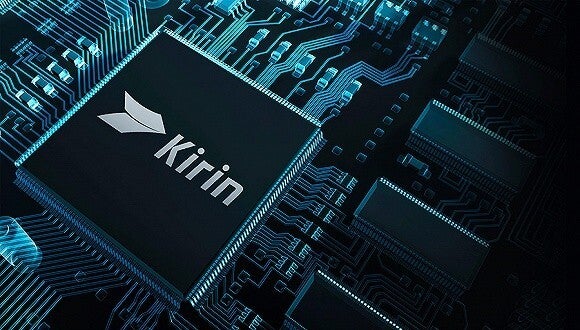As Huawei gets ready to release its first HarmonyOS phone, deep down it wants something else

According to Yahoo, even though Huawei has just unveiled the first handset powered by its home-grown Android replacement called HarmonyOS (the foldable Mate X2), the beleaguered Chinese manufacturer is not ready to forget about Android. Ever since the Trump administration placed Huawei on the entity list in 2019, the company has not been allowed to purchase hardware, software, and components from U.S. suppliers, including Google, without a license.
Huawei hopes to eventually get the green light to use Google's software again
The Chief Security Officer of Huawei USA, Tom Purdy, says that the company wants to eventually be able to license the Google Mobile Services version of Android that includes the Google Play Store and other apps like YouTube, Search, Gmail, Google Chrome, and Google Maps. While Google's core Android apps have been banned in China, they were allowed on the firm's international models. Huawei USA's Purdy says, "It’s been a very difficult struggle. But we're taking a very long term approach, and it's helping us prioritize which products are most important, which components do we have." Last year, the U.S. Commerce Department made things even worse for Huawei by changing an export rule that now prevents foundries to ship chips to Huawei that were produced using American technology. As a result, the firm has had to watch its inventory levels very carefully since it can no longer ask leading contract foundry TSMC to send it more cutting-edge 5nm Huawei Kirin 9000 chipsets.

uawei needs to make sure that it doesn't run out of inventory of its 5nm cutting-edge Kirin 9000 chipset
Early last year, Huawei passed over Samsung to briefly become the largest smartphone manufacturer in the world. That was a goal the outfit aspired to since 2016. But by the fourth quarter of last year, shipments had declined 42% on an annual basis dropping the company behind Samsung, Apple, and red-hot Xiaomi. This year, Huawei divested itself of its Honor sub-brand for $15 billion, a move made to get Honor out from under the U.S. bans. As a result, this year some analysts expect Huawei to drop to seventh place in the smartphone league tables with Honor right behind at number eight. It is a long fall for Huawei, which has been accused of having close ties with the Communist Chinese government. As a result, it has become a national security threat in the U.S. It will be up to the new Biden administration to reverse the damage that the previous administration caused. Right now, there seems to be no interest on the part of President Biden to do anything about this, although to be fair, he has some more pressing matters including the coronavirus. For Huawei, such a move could be vital to its future. "The sooner we can make decisions to go back to Google, the better," Purdy said.
Huawei says that it does expect Biden to improve the relationship between the U.S. and China. Ren says that Huawei is interested in buying equipment from U.S. companies once again and says that allowing this would be beneficial to both countries. This is certainly true when you consider that the last full year that Huawei was allowed unhindered access to its U.S. supply chain, the company spent $18 billion which went into the pockets of U.S. corporations. So ironically, Huawei wasn't the only company hurt by its placement on the entity list. The untold story here is that many U.S. tech firms lost business due to the previous administration's decision.
Ren says, "We hope the new US administration would have an open policy for the benefit of American firms and the economic development of the United States. We still hope that we can buy large volumes of American materials, components, and equipment so that we can all benefit from China’s growth." The executive also said last week that Huawei has 1 billion active smartphones. The goal will be to follow Apple's game plan and sell them services with recurring subscription fees.
Follow us on Google News













Things that are NOT allowed:
To help keep our community safe and free from spam, we apply temporary limits to newly created accounts: